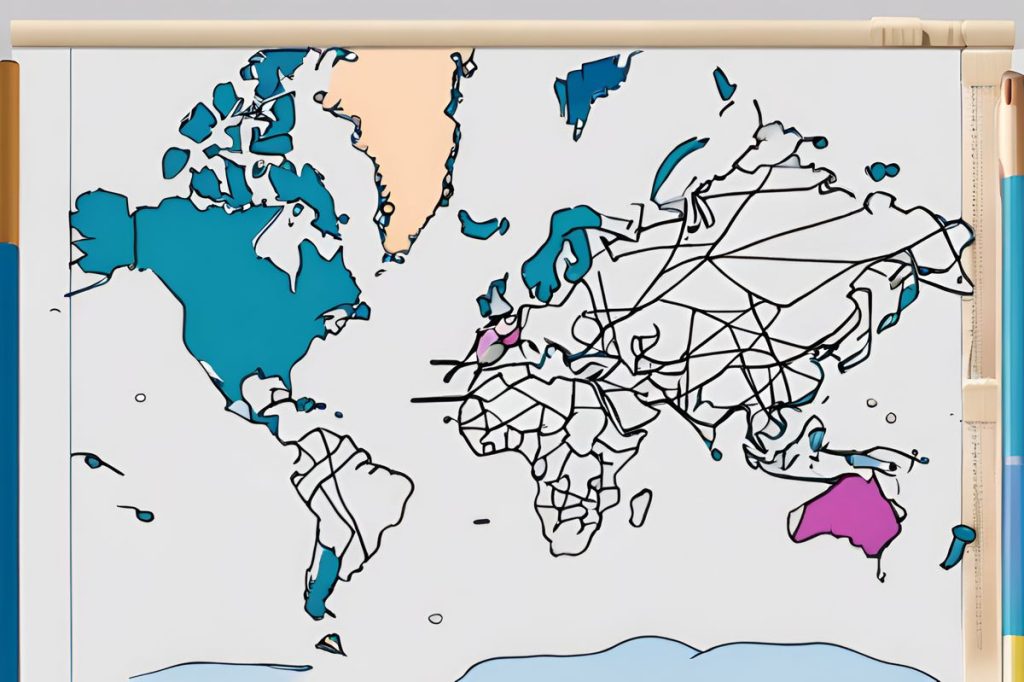The Great Sea Interconnector, formerly the EuroAsia Interconnector, is a pivotal undersea cable project linking Cyprus, Greece, and Israel’s electricity grids. With a budget of €1.9 billion and targeted completion in 2029, it signifies enhanced regional cooperation and energy security for Cyprus, all without imposing any costs on consumers until fully operational.
What is the Great Sea Interconnector and its significance for Cyprus?
The Great Sea Interconnector, formerly the EuroAsia Interconnector, is a key undersea cable project aiming to link the electricity grids of Cyprus, Greece, and Israel. Its significance for Cyprus lies in enhancing regional cooperation, energy security, and enabling renewable energy integration. It has a budget of €1.9 billion, with completion targeted for 2029.
A Pivotal Energy Project for Cyprus
Cypriot Energy Minister George Papanastasiou made it clear on Monday that Cypriot consumers should expect no charges related to the Great Sea Interconnector until it is fully operational. During an event celebrating the one-year anniversary of the energy ministry under President Nikos Christodoulides’s leadership, he emphasized the importance of not imposing any costs on the public for a service not yet in use.
The Great Sea Interconnector, previously known as the EuroAsia Interconnector, is an ambitious undersea cable initiative designed to connect the electricity grids of Cyprus, Greece, and Israel. This project is not just a mere infrastructure upgrade; it represents a significant leap forward in terms of regional cooperation and energy security.
Financial Considerations and Timelines
Managing the financial aspects of such a massive project is complex. The cable’s promoter has sought early revenues to balance out initial costs, a request that is currently under review by energy regulators from both Cyprus and Greece. The project comes with a hefty price tag of €1.9 billion and is expected to become operational by 2029.
The costs will be split between Cyprus (63%) and Greece (37%), reflecting the disproportionally larger benefits expected for Cyprus. The minister underlined that any charges to consumers would only commence once the cable is active and transmitting power.
Moreover, the government of Cyprus is contemplating a direct investment of up to €100 million into the project. This decision hinges on the results of a comprehensive cost-benefit analysis, ensuring the financial viability and strategic benefit of the investment.
Energy Exploration Developments
In other energy-related developments, the minister highlighted activities in Block 5 of Cyprus’ Exclusive Economic Zone, where the ExxonMobil-Qatar Energy consortium is conducting three-dimensional surveys. The optimistic findings from these surveys are paving the way for an appraisal drill at the Glaucus reservoir in Block 10 within the year.
Based on the positive results of the Glaucus-2 well in 2023, potential drilling targets have been identified in Blocks 5 and 10, with exploratory drilling permits expected to be granted next year. The Cypriot government also anticipates the concession holders of the Aphrodite gas field in Block 12 to present a revised development plan, aligning with Cyprus’s broader energy strategy.
Resolving Maritime Boundaries
A notable point of contention remains with Israel regarding the Yishai gas reservoir. The conflict stems from claims that the Aphrodite gas field extends into the Yishai area, which is situated within Israeli maritime territory. Although a maritime border agreement was signed between Israel and Cyprus in 2010, the two nations have not yet concluded a unitisation agreement for the joint development of gas fields that span across their maritime borders. Minister Papanastasiou expressed confidence that this issue would be resolved in the next three months, setting a positive tone for regional cooperation.
The developments in Cyprus’s energy sector are a testament to the country’s strategic vision for energy independence and sustainability. The Great Sea Interconnector is a cornerstone project that will not only enhance Cyprus’s connectivity with its neighbors but also unlock new opportunities for renewable energy integration, solidifying the country’s position in the Mediterranean energy landscape.
What is the Great Sea Interconnector and its significance for Cyprus?
The Great Sea Interconnector, formerly the EuroAsia Interconnector, is a key undersea cable project aiming to link the electricity grids of Cyprus, Greece, and Israel. Its significance for Cyprus lies in enhancing regional cooperation, energy security, and enabling renewable energy integration. It has a budget of €1.9 billion, with completion targeted for 2029.
What are the financial considerations and timelines for the Great Sea Interconnector project?
The costs of the Great Sea Interconnector project will be split between Cyprus (63%) and Greece (37%), with Cyprus bearing the majority of the cost due to the expected benefits. The project is expected to become operational by 2029. The government of Cyprus is considering a direct investment of up to €100 million in the project, pending the results of a cost-benefit analysis to ensure financial viability and strategic benefits.
What recent developments are happening in Cyprus’s energy exploration sector?
Recent activities in Block 5 of Cyprus’ Exclusive Economic Zone include three-dimensional surveys conducted by the ExxonMobil-Qatar Energy consortium. Positive findings from these surveys have led to plans for an appraisal drill at the Glaucus reservoir in Block 10. Additionally, exploratory drilling permits are expected to be granted next year for potential drilling targets identified in Blocks 5 and 10.
How is Cyprus resolving maritime boundary disputes related to energy exploration?
A notable point of contention with Israel revolves around the Yishai gas reservoir, where claims suggest the Aphrodite gas field extends into Israeli maritime territory. While a maritime border agreement was signed in 2010, a unitisation agreement for joint development of gas fields across maritime borders has not been finalized. Minister Papanastasiou expressed confidence that this issue would be resolved in the next three months, fostering positive regional cooperation.

